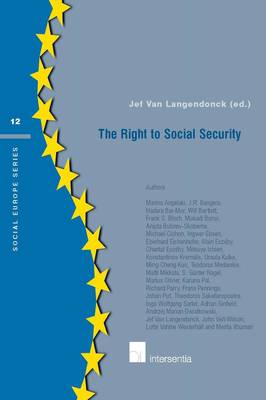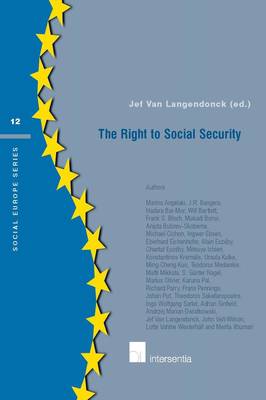
- Retrait gratuit dans votre magasin Club
- 7.000.000 titres dans notre catalogue
- Payer en toute sécurité
- Toujours un magasin près de chez vous
- Retrait gratuit dans votre magasin Club
- 7.000.0000 titres dans notre catalogue
- Payer en toute sécurité
- Toujours un magasin près de chez vous
Description
What is the meaning of the “right to social security” for the world of today, at times of neo-liberalism and globalization? Which entitlements can individual citizens derive from this right? What is meant by “social security”? Is it only about minimum benefits, or also about income maintenance? Does it include assistance? Health care? Housing? Social services?
And how can a universal right to social security be compatible with the enormous diversity in economic development and in cultural values prevailing in this world? For being universal, is this right the same for everyone? Are there different “models” of social security?
And how does this right relate to the need for economic and social development in less developed nations? How does one bring social security to the masses employed in the “informal economy”? Does the international community have a duty to take positive action in order to implement this right in the poorer regions? Those are the crucial questions that are discussed in this book. It brings together the views and opinions of numerous specialists in social protection of all disciplines and from all parts of the world. It is therefore a unique and invaluable reference book for academics and social security law practitioners.
Spécifications
Parties prenantes
- Auteur(s) :
- Editeur:
Contenu
- Nombre de pages :
- 450
- Langue:
- Anglais
- Collection :
- Tome:
- n° 12
Caractéristiques
- EAN:
- 9789050956345
- Date de parution :
- 08-02-07
- Format:
- Livre relié
- Format numérique:
- Genaaid
- Dimensions :
- 152 mm x 229 mm
- Poids :
- 935 g

Les avis
Nous publions uniquement les avis qui respectent les conditions requises. Consultez nos conditions pour les avis.






